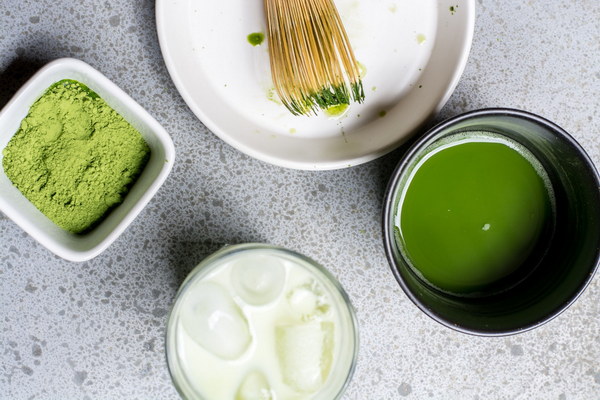Nourishing Postpartum Tea A Traditional Remedy for New Mothers Wellbeing
In the realm of traditional Chinese medicine, the postpartum period holds immense importance, as it is believed to be a critical time for a new mother's recovery and rejuvenation. One of the most cherished practices during this period is the consumption of postpartum health tea, a blend of natural herbs designed to support the body's healing process and promote overall well-being. This article delves into the significance of postpartum tea, its benefits, and how it can be integrated into a new mother's daily routine.
The Significance of Postpartum Tea
The postpartum period, also known as sitting the month, is a time when a new mother is susceptible to various health issues due to the profound changes her body has undergone during pregnancy and childbirth. Traditional Chinese medicine emphasizes the importance of nourishing the body during this delicate phase, and postpartum tea plays a vital role in this process.
Postpartum tea is believed to help the body expel the postpartum evil, which is considered to be a residual heat and toxins left in the body after childbirth. By eliminating these impurities, the tea supports the mother's recovery and enhances her ability to breastfeed successfully.
The Benefits of Postpartum Tea
1. Promotes Healing and Recovery
The herbs used in postpartum tea are known for their healing properties. Ingredients such as red dates, goji berries, and ginger help to stimulate blood circulation, alleviate pain, and enhance the body's natural healing process.
2. Supports Breastfeeding

Postpartum tea is often rich in galactagogues, which are substances that promote lactation. Herbs like fennel and anise are commonly included in the blend, as they are believed to increase milk supply and improve the quality of breast milk.
3. Balances Hormones
The hormonal fluctuations experienced by new mothers can lead to mood swings and other emotional disturbances. Postpartum tea, containing herbs like peony root and motherwort, is thought to help balance hormones and alleviate mood disorders.
4. Aids in Weight Loss
As new mothers often struggle with weight management postpartum, postpartum tea can be a helpful addition to their diet. Ingredients such as chrysanthemum and green tea are known for their diuretic properties, which can aid in weight loss and promote healthy digestion.
5. Improves Sleep Quality
Sleep deprivation is a common issue for new mothers, but postpartum tea can help. Herbs like chamomile and valerian root are known for their calming effects, which can help improve sleep quality and reduce stress levels.
How to Make and Consume Postpartum Tea
To prepare postpartum tea, gather the following ingredients:
- Red dates (5-10 pieces)
- Goji berries (10-15 pieces)
- Ginger (1 inch piece)
- Chrysanthemum (1-2 teaspoons)
- Green tea (1-2 teaspoons)
- Optional: Peony root, motherwort, fennel, or anise
Combine the ingredients in a pot of boiling water and simmer for 15-20 minutes. Strain the tea and serve it warm. It is recommended to consume postpartum tea 2-3 times a day, especially after meals.
Conclusion
Postpartum tea is a time-honored tradition that offers numerous benefits for new mothers. By incorporating this traditional remedy into their daily routine, mothers can support their recovery, enhance their well-being, and foster a healthy bond with their newborns. While the effectiveness of postpartum tea may vary among individuals, its natural ingredients and time-honored practices make it a valuable addition to the postpartum care toolkit.







![The Enchanting Touch of Skincare Expert Unveiling the Beauty Secrets of [Name]](http://img.bluepurple.cn/a/养生/100/The-Enchanting-Touch-of-Skincare-Expert-Unveiling-the-Beauty-Secrets-of-Name.jpg)

